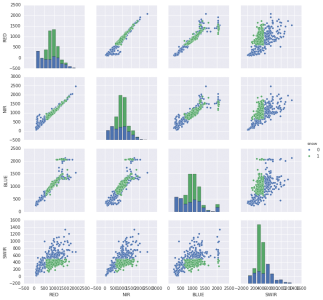
In this post, we'll try to give an overview of how iPython notebooks will be supported by the exploitation platform. As you will see, they provide an interesting environment for quick experiments with a short feedback loop, but also have the power to be true 'digital research papers'.
IPython or 'interactive Python', is a combination of the interactivity of a python console, where you can get immediate feedback on commands, and the convenience of saving your file in a script which makes it available for future reference. On top of that it has some interesting features which are not found in any of these traditional programming methods:
- Graphical results (plots, images, maps,...) can be shown inline
- All results are stored, and can be exported to an html file for easy sharing.
While this all exists as a standalone tool, which can be installed and used by anyone on his local machine, things become even more interesting when we integrate iPython into our exploitation platform. These are some of the most interesting features to expect:
- Direct access to the full PROBA-V data set.
- Commonly used tools (GDAL, numpy, scipy,...) preinstalled and preconfigured
- Access to a processing cluster to process large datasets in parallel
- Notebooks will be accessible from any location or device, so you can continue working uninterrupted when switching devices.
- Collaboration and sharing of notebooks
At this point, you are probably curious to see what this looks like, so here is a preview.
Do note that while this notebook tries to mimick a scientific way of working, it is meant for demonstration purposes only. The approach presented is not meant to be evaluated scientifically, and none of the results have been validated in any way.
